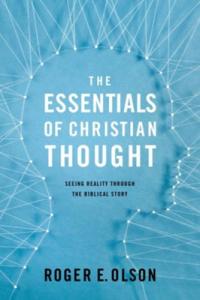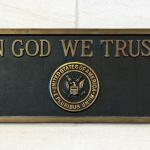Essentials of Christian Thought: Chapter 6: The Biblical-Christian Perspective on the World
The biblical story can only be rightly interpreted as representing an “ontological interval” between God and the world as well as a “moral interval.” However, the two intervals must not be confused with each other. The ontological interval, God’s transcendence (not to diminish God’s immanence), does not cause the moral interval. According to the biblical story, sin and evil are NOT caused by finitude or by God’s transcendence; they arise ONLY as a result of creatures’ misuse of their God-given free will.
There is continuity and discontinuity between God and the world as a result of the first “interval” plus God’s creating activity. I do not read the biblical story as indicating that God is “wholly other” than what he creates. On the other hand, according to the biblical story, God is truly other than what he creates.
According to the biblical story, “grace fulfills nature” but does not destroy nature and nature is open to grace but cannot force grace.
Why did God create at all? For his glory and out of the overflowing of his love. Creation is the “theater of God’s glory” AND the natural result of his love, God seeking an object outside of himself on whom to lavish his love. Thus, both Jonathan Edwards and John Wesley were right.
In Interlude 6 I argue that there is no essential or necessary conflict between science and religion, between science and Christianity. I tell the true story of the infamous “Scopes Monkey Trial” of 1925 which is misrepresented in literature and in high school and college classes. The conflicts arise only when scientism smuggles naturalism into itself and/or when Christians misinterpret the Bible as a science textbook. I truly wish that more people knew about and read Emil Brunner’s excellent and very important book The Philosophy of Religion from the Standpoint of Protestant Theology. There the Swiss theologian avers that there cannot in principle be any real conflict between science and Christian doctrine. He chides both naturalistic scientists and conservative Christians (biblicists) for transgressing the boundaries of their sources and methods.
I stand by everything I wrote in this chapter and this interlude. I believe it is an articulation of the underlying, implicit metaphysical vision of reality of the Bible. I believe it is also standard, orthodox Christianity made explicit with regard to God and the world, science and Christianity/the Bible.
*If you have read the chapter and the interlude, feel free to respond and/or ask questions. If you have not read the chapter and the interlude, feel free to ask a question. In any case, keep your response relatively brief (no more than 100 words), on topic, addressed to me, civil and respectful (not argumentative or hostile), and devoid of pictures or links.*














